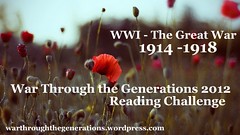
Audiobook, 15+ hours
I am an Amazon Affiliate
Holly by Stephen King, narrated by Justine Lupe, is a novel that will at times challenge readers because it is set during the height of the pandemic when information about the virus was minimal and many people were running scared. Holly, who is a bit of a hypochondriac, wears masks and gloves, and she’s definitely wiping down everything for germs, but she still smokes cigarettes. She is nothing but a ball of contradictions, but aren’t we all.
Finders Keepers is the private detective agency she runs with her partner, Pete, and some other helpers/researchers who will be familiar to readers of If It Bleeds and The Outsider, among others. She sets out to find a missing girl and uncovers a lot more than she bargained for.
This is probably the least creepy of King’s novels, as it deals with a real-world evil, rather than a supernatural one. Holly’s investigation of the girl’s disappearance takes her down a rabbit hole into other disappearances, but in the back of her mind is the anxiety about the pandemic, her mother’s passing, and her partner’s sickness.
Holly by Stephen King is a solid novel set in a time period many of us would probably like to forget or gloss over, but it reminds us that while we lived through it, we haven’t really dealt with the consequences of it. Some readers will bristle at the vax vs. antivax and COVID vs. non-COVID believers and all that it entails. I suggest they skip this one because they will be too focused on things that are just part of the time period for the story and less on the story and the character, Holly, herself. She navigates some big emotional traumas in this one, and I’m not sure if she’s addressed all she needs to (much like the rest of us) — she may show up again in another King novel, who knows.
RATING: Quatrain
Other Reviews:
- The Diary of Ellen Rimbauer: My Life at Rose Red
- IT
- Joyland
- The Regulators
- Doctor Sleep
- Revival
- Salem’s Lot
- Mr. Mercedes
- 11/22/63
- Under the Dome
- The Colorado Kid
- Elevation
- The Outsider
- The Institute
- Later
- Billy Summers
- Fairy Tale
- If It Bleeds
About the Author:
Stephen King is the author of more than fifty books, all of them worldwide bestsellers. His recent work includes Doctor Sleep and Under the Dome, now a major TV miniseries on CBS. His novel 11/22/63 was named a top ten book of 2011 by The New York Times Book Review and won the Los Angeles Times Book Prize for Mystery/Thriller as well as the Best Hardcover Book Award from the International Thriller Writers Association. He is the recipient of the 2003 National Book Foundation Medal for Distinguished Contribution to American Letters. He lives in Bangor, Maine, with his wife, novelist Tabitha King.







